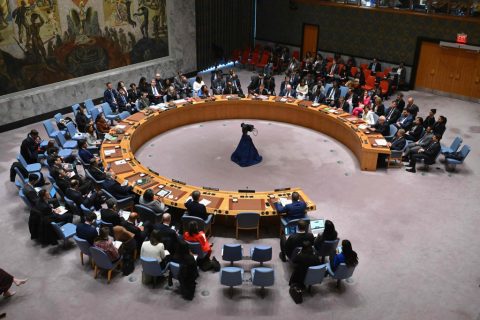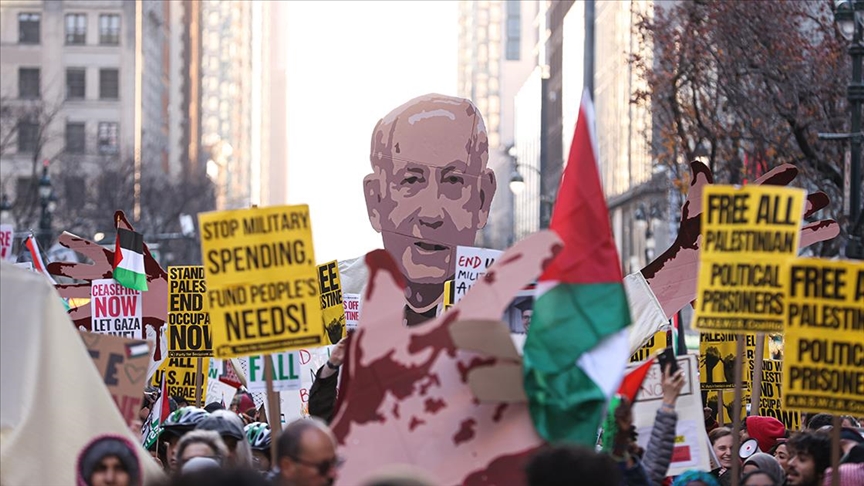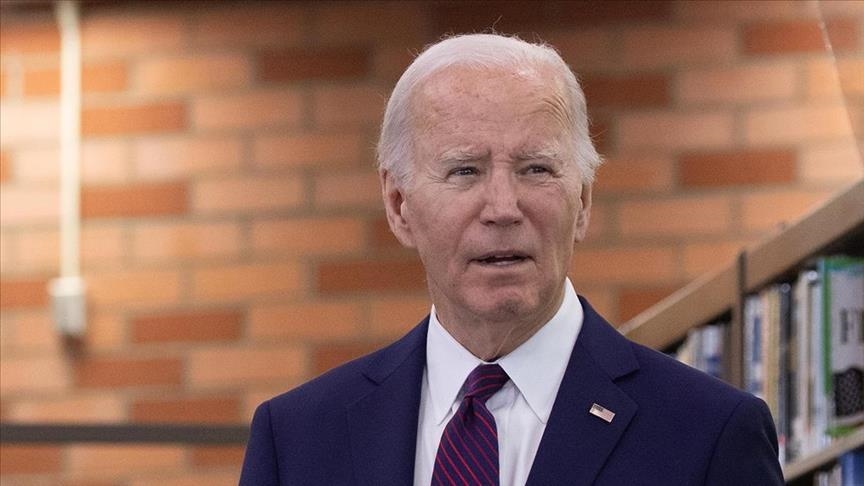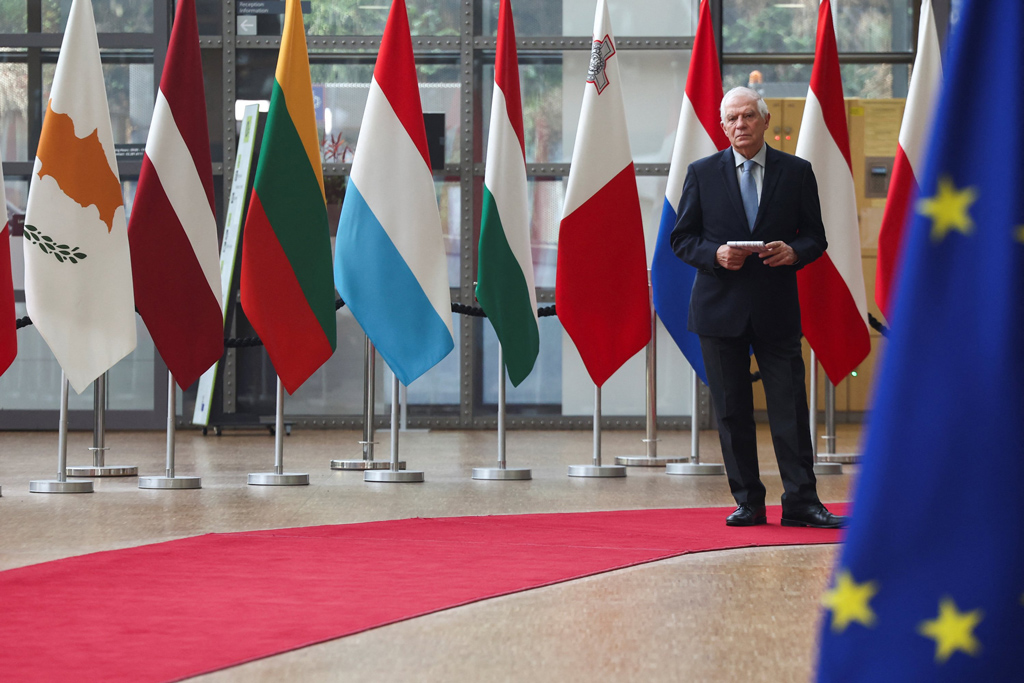Cease-fire | Ceasefire

The ‘tragedy’ of US policy vis-a-vis Israel
| OpinionThe Biden administration seems to have at least temporarily succeeded in preventing Iran’s direct attack …
-
Opinion
The ‘tragedy’ of US policy vis-a-vis Israel
By Kadir ÜstünThe Biden administration seems to have at least temporarily succeeded in preventing Iran's direct attack on Israel from escalating into an uncontrolled war. The White House conveyed the message to Israel through various channels that any attack on Iran should be 'proportional,' also signaling to the Netanyahu government that US support for Israel would be limited to defense. With the assistance of the United States, the United Kingdom, and Jordan, Iran's UAVs and missiles were intercepted before reaching Israeli airspace, making the job of the Iron Dome relatively easier. However, Iran's low-intensity and controlled attack with low-cost weapons demonstrated that in a more 'real' war, Israel's task would be far from easy. The attack, which brought the urgency of Israel's defense to the forefront, seems to pave the way for a vote on a long-delayed aid package for Israel, Ukraine, and Taiwan in the House of Representatives. The fact that American foreign aid could reach the approval stage thanks to the attack on Israel indicates how much the issues that bring Republicans and Democrats together have decreased.
-
Opinion
Did Biden abandon Israel at the UN General Assembly?
By Kadir ÜstünThe 'immediate ceasefire resolution' issued by the United Nations General Assembly (UNGA) due to the United States' abstention indicates that the Biden administration's political pressure on Israeli Prime Minister Netanyahu persists. Despite the White House emphasizing that the decision is not binding and that there are no changes in policy, Netanyahu canceled the visit of the delegation he planned to send to Washington immediately after the UNGA decision. The fact that the Biden administration, which has been diplomatically protecting Israel with its veto power since October 7th, chose to abstain this time suggests that the crisis in bilateral relations has reached its peak. While Netanyahu may lean towards Trump, who has advocated for ending the conflict, Trump's remarks have increased American pressure.
-
Opinion
Will Israel implement the UNSC Gaza cease-fire resolution?
By Muhittin AtamanThe United Nations Security Council (UNSC) has passed a resolution demanding an immediate cease-fire in Gaza for the month of Ramadan. The 14 members council members voted in favor of the resolution, which was proposed by the 10 elected members of the council. Only the United States abstained from the vote. After the vote, there was an unusual round of applause in the council chamber, showing how much the international community wants the bloodshed to end.
Bu Konuda Daha Fazla
-
What does the Biden-Netanyahu spat signify?
By Burhanettin DuranU.S. President Joe Biden recently said that they are working on a six-week emergency cease-fire, describing Rafah as a red line. Yet Israeli Prime Minister Benjamin Netanyahu reiterated his commitment to conduct military operations in that area. The Israeli army perpetrating atrocities in Rafah, where 1.4 million Palestinians have been starving during Ramadan, would be a new source of shame for the world and the Muslim community. Since the U.S. exerts greater influence over Israel than any other nation, one cannot help but keep an eye on the Biden administration's (in)action.
-
Biden’s red line…
By Kadir ÜstünPresident Biden publicly revealed his disagreement with Netanyahu over the Gaza issue in his 'red line' statement over the weekend. Biden stated that a military operation into Gaza was a red line for the Rafah that Netanyahu had planned. Facing heavy criticism from his own base for not calling for a ceasefire for a long time, Biden finally started to mention a ceasefire. On the other hand, by stating that he would never abandon Israel, Biden showed that his red line was not that strict. He also said that Netanyahu's policies were harming Israel. While expressing his intention to continue financing defense systems like Iron Dome, which protect Israel, Biden also mentioned that they could not tolerate the deaths of another 30,000 Palestinians and urged Netanyahu to be careful about the deaths of innocent civilians. It is no coincidence that Biden is making such statements at this stage of his presidential campaign, as the message of the Democratic electorate in Palestine was clear after the primary results.
-
Will there be cease-fire in Gaza during Ramadan?
By Muhittin AtamanFor the past five months, Israel has been targeting the innocent people of Gaza, with the United States and most Western governments continuing to mobilize their resources to support Israel’s brutal attacks against Gaza. By now, the attacks have become Israel’s longest intensive military operation against the Palestinians. On the one hand, while the Palestinian people are at their most vulnerable position and facing genocide, hundreds of millions of people around the world are chanting their just cause. On the other hand, as Israel continues its longest and most brutal attacks against the Palestinians, it has lost legitimacy not only in the eyes of the international community but also in the eyes of most of its supporters. It seems that this is the main paradox of post-Oct. 7.
-
What do the results of Super Tuesday indicate?
By Kadir ÜstünIn American elections, especially in swing states, the turnout of party voters is crucial. Trump, while seeking to win over independent voters against Biden, also needs to court Republican voters. Haley's announcement of withdrawing from the race and not endorsing Trump in her speech aimed to remind the party's internal opposition that cannot be easily ignored. Haley indicated this by stating that Trump would "make an effort to win the votes of those who didn't vote for him." Despite the knowledge that Trump would comfortably win on Super Tuesday and secure the party nomination, a quarter of voters in many states expressed their dissatisfaction by voting for Haley. Haley's ability to garner significant support without spending substantial amounts on campaign ads last week demonstrates the presence of a considerable number of people dissatisfied with Trump's candidacy.
-
Hurricane brewing in the West – but what about...
By Burhanettin DuranIt was Josep Borrell, the European Union’s high representative for Foreign Affairs and Security Policy, who said that a hurricane was brewing in the West. He made that remark in an interview with the Spanish newspaper El País where he accused Ursula von der Leyen, the European Commission’s president, of assuming a completely pro-Israel stance. Recalling that the EU’s policy toward the Russo-Ukrainian war and Israel’s massacres in Gaza came with a hefty price tag, Borrell predicts a hurricane in the West, warning against the approaching “circle of violence” – a reference to Dante’s Inferno – and urging Europe to wake up.

















